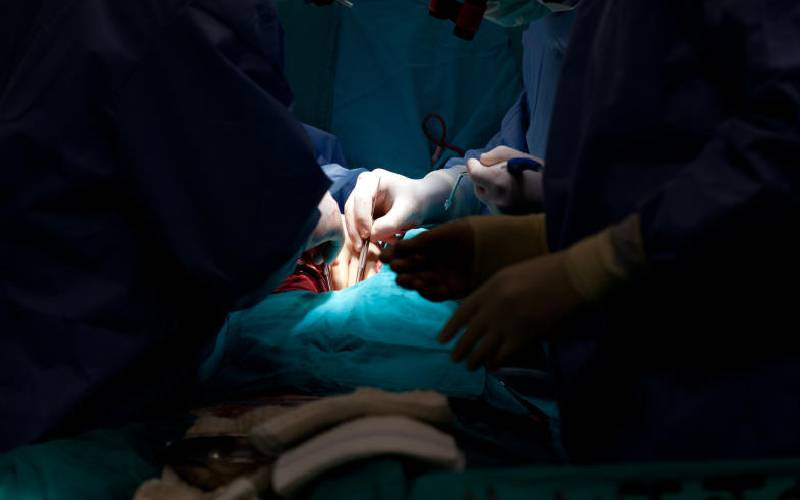Every year, thousands of Kenyan families face a quiet but devastating health crisis; congenital and acquired heart disease. Over 5,000 children require open-heart surgery annually in Kenya, not to mention hundreds of adults whose conditions demand the same intervention.
Yet, the country performs only a fraction of these life-saving operations, leaving majority untreated. The reason is not that Kenya lacks medical expertise. In fact, our cardiothoracic surgeons, anesthetists, and specialist nurses are among the most skilled in the region. Rather, the barrier is cost.
For most families, the price tag of open-heart surgery—often running into millions of shillings—is out of reach. Too often, these costs push families into financial ruin or force them to abandon treatment altogether, with tragic consequences. This is where initiatives like the Open-Heart Surgical Camp at Kenyatta National Hospital (KNH) become so significant.
For one week, a dedicated team of surgeons and specialists has been performing life-saving procedures at subsidised costs, with patients who hold valid Social Health Insurance Fund (SHIF) cover receiving vital support. For many, this is the difference between hope and despair, survival and loss.
Follow The Standard
channel
on WhatsApp
But this camp represents more than just a series of surgeries. It is a demonstration of what is possible when investment, expertise and political will converge. KNH’s acquisition of a state-of-the-art Heart-Lung Machine—the first of its kind in a public hospital in Kenya—has enabled the team carry out highly complex surgeries with precision. It also provides a valuable training ground for young doctors and surgical teams, ensuring that future generations of Kenyans will access the same life-saving care.
The larger issue, however, goes beyond one hospital or one camp. Why should access to open-heart surgery remain a privilege for the few who can afford it or travel abroad? How do we close the gap between the need for surgery and capacity to provide it? What role should government and policymakers play in making sure no child is denied the chance to live because treatment was “too expensive”?
The answers lie in bold investments in healthcare infrastructure, sustainable financing mechanisms, and deliberate training of specialists. SHIF presents an opportunity to rethink how life-saving procedures are financed. Properly managed, it could ensure surgeries like these are not dependent on occasional camps but are consistently available.
At the same time, awareness is critical. Many families do not know signs of congenital heart disease in children—bluish skin, difficulty feeding, or rapid breathing. By the time a diagnosis is made, it is often too late. A national programme that pairs preventive education with specialised care could dramatically reduce the burden of untreated heart disease.
Ultimately, this is not just a medical issue but a moral one. Healthcare cannot remain the preserve of the wealthy. Affordable access to open-heart surgery is a litmus test of Kenya’s commitment to universal health coverage. KNH has shown what is possible through its expertise and advanced technology, but it cannot do it alone. This must be a national priority, backed by sustained government support and public awareness.
The Open-Heart Surgical Camp is a reminder that excellence in care is already here, within our borders. The challenge is to make that excellence accessible to every Kenyan who needs it not once in a while, but every single day.
Dr Ndiritu is Head of Unit Cardiothoracic and Vascular Surgery at KNH
Follow The Standard
channel
on WhatsApp
By Simon Ndiritu
